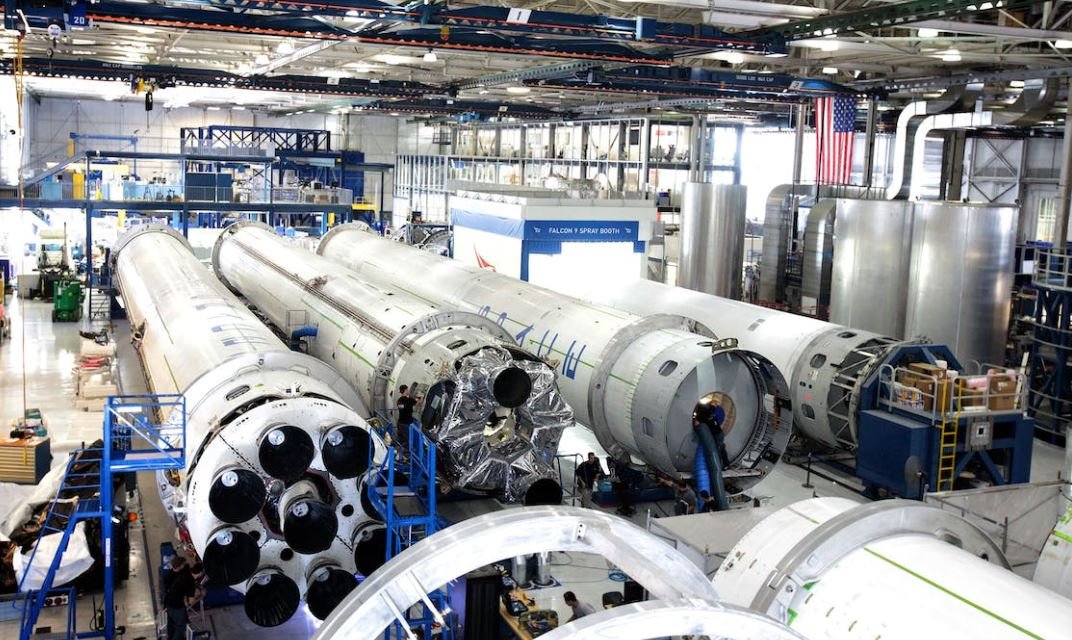What Is AI Voice
Artificial Intelligence (AI) has significantly progressed over the years, and one of its notable applications is AI voice technology. AI voice refers to the ability of machines to understand and respond to human speech using natural language processing and machine learning algorithms. This technology has revolutionized various industries, including customer service, virtual assistants, and voice-controlled devices. In this article, we will explore the key aspects and benefits of AI voice and its impact on our daily lives.
Key Takeaways
- AI voice enables machines to understand and respond to human speech.
- Natural language processing and machine learning algorithms are key components of AI voice technology.
- AI voice has transformed industries such as customer service, virtual assistants, and voice-controlled devices.
- Benefits of AI voice include improved efficiency, enhanced user experience, and accessibility.
- AI voice technology is continuously evolving and holds great potential for future advancements.
Artificial Intelligence voice technology utilizes natural language processing and machine learning algorithms to enable machines to understand human speech. It involves converting spoken language into text, analyzing and interpreting it, and generating appropriate responses. AI voice systems are trained with vast amounts of voice data to improve accuracy and responsiveness. These systems can learn and adapt to different voices, languages, and accents, making them highly versatile. With the advancements in AI, voice technology has become increasingly sophisticated, delivering more human-like interactions.
*AI voice technology has revolutionized customer service by providing automated solutions that can handle customer queries and requests. Virtual agents powered by AI voice can assist customers in a manner similar to human agents, reducing wait times and providing 24/7 support. Through natural language understanding and speech synthesis, AI voice systems can resolve inquiries, provide relevant information, and even facilitate transactions. This improves customer satisfaction, increases efficiency, and reduces costs for businesses.*
In addition to customer service, AI voice technology has made a significant impact on virtual assistants and voice-controlled devices. Virtual assistants like Amazon’s Alexa, Apple’s Siri, and Google Assistant utilize AI voice to understand voice commands and perform tasks such as setting reminders, playing music, and answering questions. These virtual assistants continually improve their speech recognition capabilities, making them more accurate and reliable. Voice-controlled devices, such as smart speakers and smart home automation systems, have become increasingly popular due to their convenience and ease of use. They enable users to control various devices and appliances through voice commands, creating a seamless and hands-free user experience.
| Benefits of AI Voice | |
|---|---|
| 1. | Improved efficiency and productivity |
| 2. | Enhanced user experience |
| 3. | Increased accessibility for individuals with disabilities |
| 4. | Cost savings for businesses through automation |
AI voice technology offers numerous benefits. Firstly, it improves efficiency and productivity by automating repetitive tasks and reducing the need for manual input. This frees up time for individuals, allowing them to focus on more complex and strategic activities. Secondly, AI voice provides an enhanced user experience by enabling natural and interactive interactions with machines. Users can perform tasks, obtain information, and get personalized recommendations through voice commands, creating a seamless and intuitive experience. Thirdly, AI voice enhances accessibility for individuals with disabilities, as it enables them to use devices and systems through voice, bypassing the need for physical input. Lastly, businesses can achieve cost savings by automating customer service and reducing the need for human agents, especially for routine inquiries and tasks.
| Industry Applications | Examples |
|---|---|
| Customer Service | Chatbots, voice-enabled IVR systems |
| Virtual Assistants | Alexa, Siri, Google Assistant |
| Voice-Controlled Devices | Smart speakers, home automation systems |
AI voice technology finds applications in various industries. In customer service, chatbots and voice-enabled Interactive Voice Response (IVR) systems use AI voice to provide automated assistance and resolve customer inquiries. These systems can handle multiple conversations simultaneously and analyze customer sentiment to provide personalized experiences. Virtual assistants, such as Alexa, Siri, and Google Assistant, utilize AI voice to perform tasks, answer questions, and provide recommendations. They continuously learn and adapt to individual preferences and improve their accuracy and responsiveness. Voice-controlled devices, including smart speakers and home automation systems, rely on AI voice to enable users to control various devices and perform tasks through voice commands, making homes more intelligent and convenient.
Overall, AI voice technology has transformed the way machines interact with humans, enabling natural and intuitive exchanges. Its application in industries such as customer service, virtual assistants, and voice-controlled devices has led to improved efficiency and enhanced user experiences. With ongoing advancements in AI, voice technology will continue to evolve and bring forth new possibilities. Embracing AI voice has the potential to revolutionize various aspects of our lives, making technology more accessible, efficient, and user-friendly.

Common Misconceptions
Misconception 1: AI Voice is the same as human voice
One common misconception about AI voice is that it is the same as human voice. While AI voice is programmed to sound like a human voice, it is actually generated by a computer algorithm. It may not possess the same emotions, inflections, or nuances as a real human voice.
- AI voice lacks the ability to convey emotions effectively.
- It is limited in terms of replicating certain accents or regional dialects.
- AI voice lacks the physical and biological attributes that contribute to the uniqueness of human vocal cords.
Misconception 2: AI Voice can perfectly understand and respond to any command
Another common misconception is that AI voice can flawlessly understand and respond to any command or question. While AI voice technology has advanced significantly, there are still limitations to its capabilities.
- AI voice may struggle with complex or ambiguous queries.
- It can be easily confused by unclear or muddled speech.
- AI voice may not be equipped to handle certain specialized or niche topics.
Misconception 3: AI Voice is always unbiased
Many people believe that AI voice is free from biases, assuming that it will provide objective information and opinions. However, AI voice systems are developed by humans and can unintentionally reflect the biases and prejudices of their creators.
- AI voice may unknowingly perpetuate gender or racial biases in the language used.
- It could be influenced by the data it is trained on, leading to biased responses.
- AI voice may not be able to recognize or correct its own biases.
Misconception 4: AI Voice can replace human interaction entirely
Some people mistakenly believe that AI voice technology can completely replace human interaction. While AI voice can mimic human conversation to a certain extent, it cannot fully replicate the complex nuances and empathy that come with person-to-person communication.
- AI voice lacks the ability to provide genuine empathy and emotional connection.
- It cannot understand or respond appropriately to non-verbal cues.
- AI voice cannot adapt or provide personalized responses based on context or individual needs.
Misconception 5: AI Voice will lead to job losses in the voice industry
There is a misconception that AI voice technology will lead to widespread job losses in the voice industry. While it is true that AI voice can automate certain tasks, it also has the potential to create new opportunities and roles within the industry.
- AI voice can be utilized to enhance and augment human voice talents, rather than replace them entirely.
- It can open avenues for voice actors to work on creating unique AI voices.
- AI voice technology requires human supervision and maintenance, leading to new job opportunities in this field.

The Rise of AI Voice Assistants
With the rapid advancements in technology, AI voice assistants have become an integral part of our daily lives. These intelligent virtual assistants can perform a variety of tasks, from answering questions and setting reminders to controlling our smart homes. In this article, we explore the growth and impact of AI voice assistants, backed by fascinating facts and figures.
Personal Voice Assistant Users Worldwide
As of 2021, there are approximately 3.25 billion users worldwide who interact with personal voice assistants through their smartphones, smart speakers, and other devices.
Smart Speaker Market Share
In the global smart speaker market, Amazon’s Echo leads the way with a staggering 53% market share, followed by Google Home with 31%, and Apple HomePod with 12%.
Benefits of AI Voice Assistants
AI voice assistants offer numerous advantages to users. They can help increase productivity, provide personalized recommendations, enhance accessibility for individuals with disabilities, and improve hands-free device interaction.
Top Voice Assistant Commands
According to a recent study, the most commonly used voice assistant commands are sending messages (25%), making phone calls (21%), playing music (20%), setting alarms (18%), and retrieving weather information (16%).
Voice Assistant Accuracy
AI voice assistants have significantly improved their accuracy over the years. Currently, the leading voice assistants boast an accuracy rate of approximately 95% for recognizing speech commands.
Global Voice Assistant Revenue
The revenue generated by the voice assistant market is projected to exceed $30 billion by 2025, a substantial increase from the estimated $5.7 billion in 2020.
Voice Assistant Adoption in Different Fields
The adoption of voice assistants is not limited to personal use. Industries such as healthcare, retail, automotive, and hospitality are increasingly integrating AI voice assistants to enhance customer experiences, automate tasks, and increase operational efficiency.
Voice Assistant Security Concerns
While AI voice assistants provide convenience, privacy and security concerns persist. Recent studies have highlighted potential vulnerabilities, such as unintended voice activations, voice impersonation attacks, and unauthorized data collection.
Future Developments in AI Voice Assistants
The future of AI voice assistants looks promising, with ongoing research and development focused on more natural language processing, contextual understanding, emotion recognition, and multi-language capabilities.
Conclusion
AI voice assistants have revolutionized the way we interact with technology. With their increasing accuracy, expanding market share, and adoption across various industries, these virtual companions are here to stay. Nevertheless, addressing security concerns and further enhancing their capabilities will play a crucial role in shaping the future of AI voice assistants.
Frequently Asked Questions
What is AI voice?
How does AI voice work?
What are the applications of AI voice?
What are the benefits of AI voice?
Is AI voice secure and private?
Can AI voice understand different languages and accents?
What are the challenges faced by AI voice?
Are AI voice assistants always listening?
Can AI voice replace human interaction?
What is the future of AI voice?




